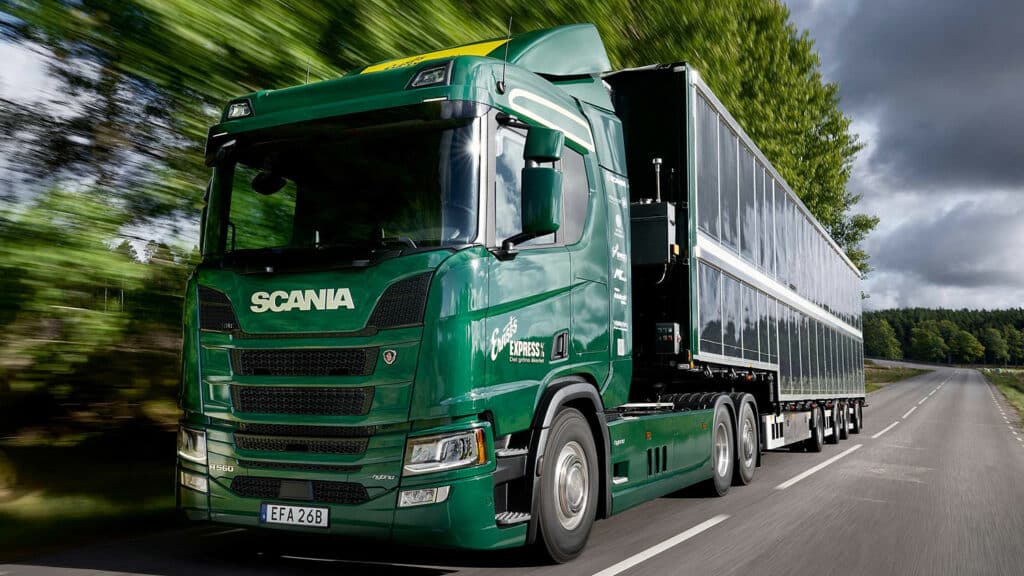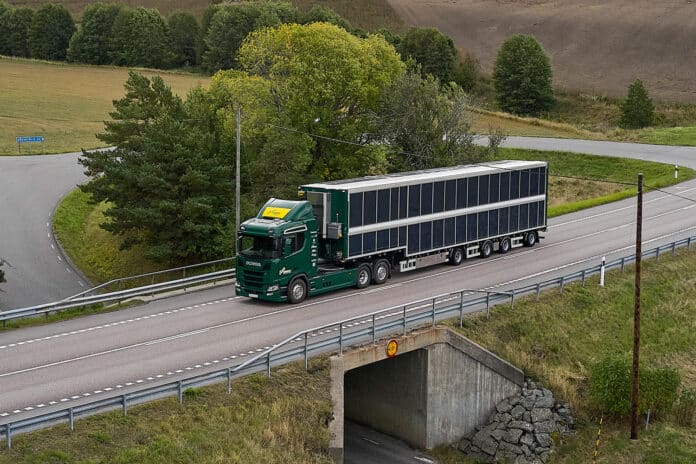A unique hybrid truck with a solar panel-covered trailer is being tested on public roads. The new academic-industry initiative is a result of a two-year research collaboration involving Scania, Uppsala University, Eksjö Maskin & Truck, Midsummer, Ernsts Express, and Dalakraft.
Solar energy significantly decreases operational costs and local emissions because of the truck’s self-produced energy. For the project, researchers developed new, efficient, and lightweight solar panels to harvest natural energy from all the solar-soaked trucks.
The Swedish research collaboration is examining the generated solar energy and how much carbon emissions decrease via the solar panels. They also study how trucks can interact with the power grid and bring forward new models for what will happen if several trucks like this one are connected to the power grid.

The truck is a 560-horsepower plug-in hybrid with an 18-meter trailer that is almost completely covered by 100 square meters (1,076 square feet) of thin, lightweight, and flexible solar panels. This is equivalent to the solar-surface area of an average house equipped with similarly powerful panels with a maximum efficiency of 13.2 kWp (kilowatt peak).
The research truck uses new, lightweight tandem solar cells that are based on a combination of Midsummer’s solar cells and new perovskite solar cells. They are estimated to deliver 8,000 kilowatt hours (kWh) annually when operated in Sweden. The truck’s batteries have a total capacity of 300 kWh, with 100 kWh on the truck and 200 kWh on the trailer.
The truck’s solar energy contribution offers a prolonged annual driving range of up to 5,000 km (3,100 miles) in Sweden. In countries like Spain, with more sun hours, the vehicle can double the amount of solar energy and thus driving range compared to Swedish circumstances.
“Scania’s purpose is to drive the shift towards a sustainable transport system. Never before have solar panels been used to generate energy for a truck’s powertrain, as we do in this collaboration. This natural energy source can significantly decrease emissions in the transport sector. It is great to be at the forefront in the development of the next generation’s trucks,” says Stas Krupenia, Head of the Research Office at Scania, in the press release.
The solar-powered truck has been developed in a research project partly funded by a government agency of innovation, Vinnova, to develop trucks with low climate impact thanks to solar energy.
